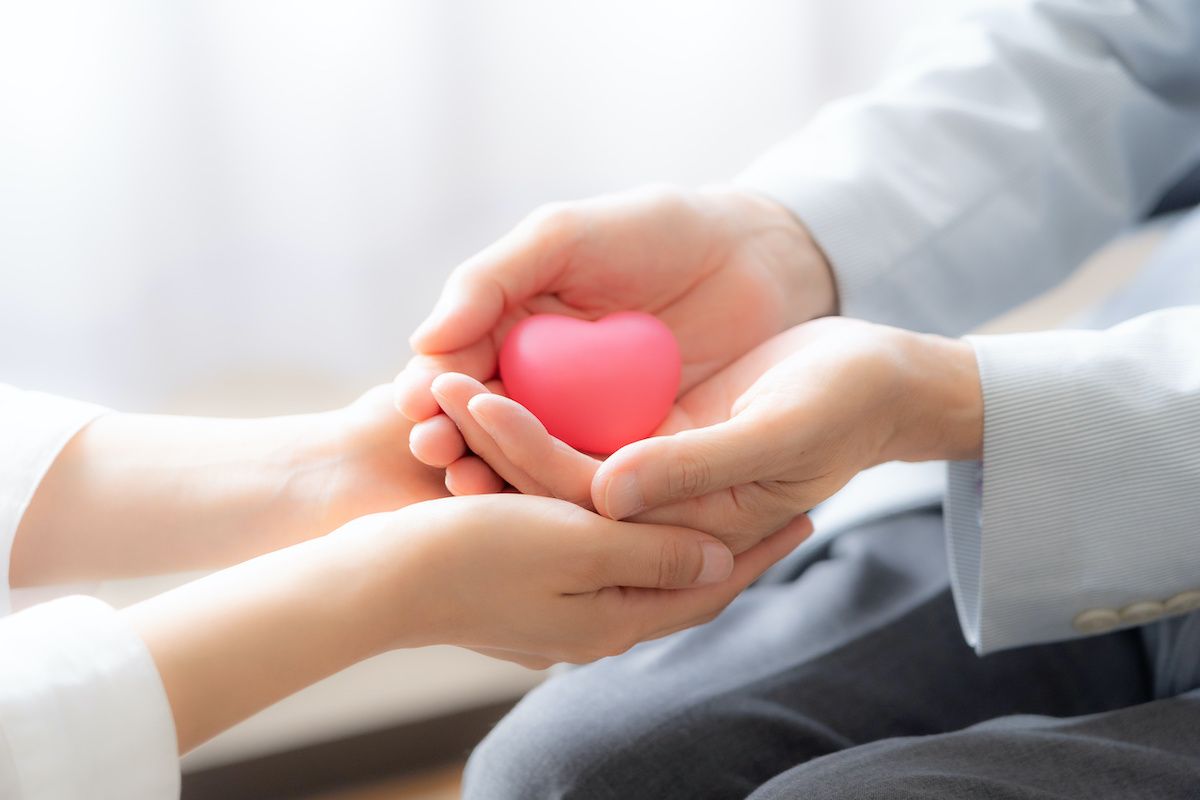Caregivers play a vital role in their loved one’s cancer journey. Without training or payment, they serve as drivers, cooks, secretaries, advocates and confidants. They provide home healthcare — monitoring symptoms, administering medications, managing tubes, ostomies and drains, dressing wounds and assisting with hygiene. They often are the one who oversee home and family, from responding to well-meaning questions from family and friends to making sure bills are paid and cupboards are stocked.
The toll of caregiving
We tend to think of caregivers as people with an endless reserve of time, energy and health. The reality is they are as human as the rest of us, and like us may feel betrayed by the fact that there aren’t enough hours in the day. A national survey of caregivers of cancer patients in the U.S. a few years ago found that caregivers spent on average more than eight hours a day for more than a year providing care for their loved one with cancer (Yabroff & Kim, 2009).
Some try to do all that while maintaining a full-time job; they sacrifice sleep, cut corners and struggle with the feeling that they are always letting someone down. Others may take a leave of absence or quit their job, then must adjust to a loss of income and a blow to their identity. Still others may already be without employment because they have a chronic illness. Some caregivers may even be cancer patients or survivors themselves.
Caregivers must take care of themselves, too
Caregivers who are themselves cancer patients or survivors face an added challenge in their caregiver role. It’s a bit like the story of actress and singer Ginger Rogers, who danced with Fred Astaire. It was said she did everything he did, but she did it backwards and in high heels. Caregivers with cancer must manage their own symptoms and treatment while at the same time helping their loved one through their illness.
If you are a caregiver, especially a caregiver dealing with your own illness, here are some suggestions that might help:
- Remember that you are a finite and irreplaceable resource. Know that you can’t do it all. No one can. You need to prioritize tasks because as much as you want to believe you can do it all you can’t. If you are having trouble prioritizing, see if there might be someone who can help.
- Be open with others about what you need. Has someone told you to let them know if there is anything they can do to help? Ask them. Be specific. People are more willing to say yes to a task if they know what they are saying yes to. If they say “no” when you ask, remember that you wouldn’t be asking if you didn’t need their help, so try again.
- Take care of your body. Remember to eat and to eat well. You need sleep, so don’t judge yourself for being tired. Remember that a candle burned at both ends eventually burns itself out. Try to move your body every day. Movement helps lift our spirits.
- Take care of your mind. When your thoughts are filled with fears about the future, redirect your thoughts back to the present and what you are doing right now. Pay attention to your breathing and try to slow and deepen each breath. If you feel like crying, let yourself cry and try not to apologize for it. Crying is one of our bodies’ stress relievers. Meditate, or if you don’t like to meditate, try daydreaming. Daydreaming is like taking a mini vacation in your imagination. For your mind, imagining yourself in a beautiful place is as good if not better than being there.
- Take care of your spirit. Talk to someone who loves you. If you don’t want to speak openly to someone you know, seek out a professional. We feel better when we unburden ourselves to someone we trust.
Finding strength through support
If you are a caregiver, The 11 Day Power Play Cancer Resource Center has both the resources and support to help you manage this new responsibility.


